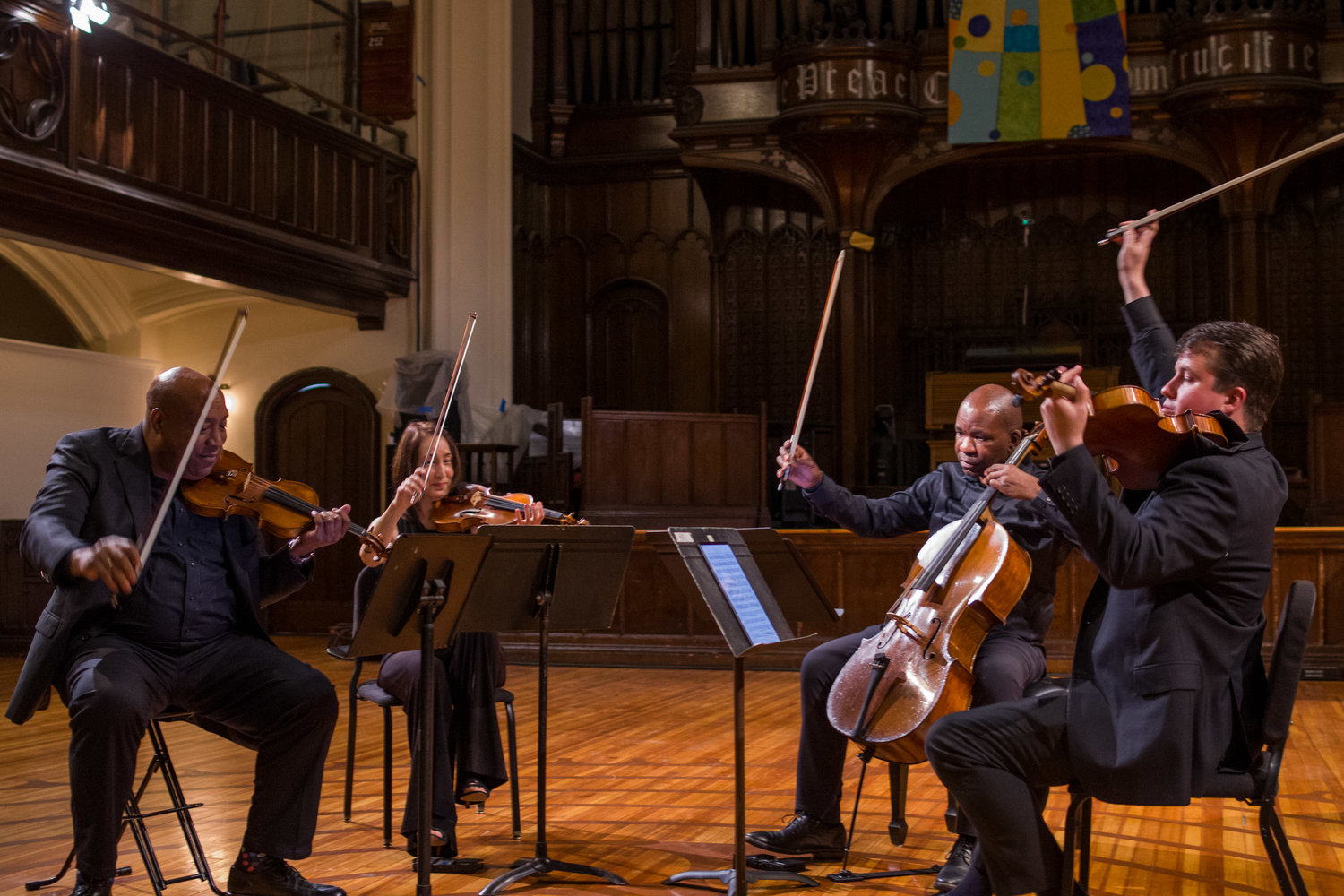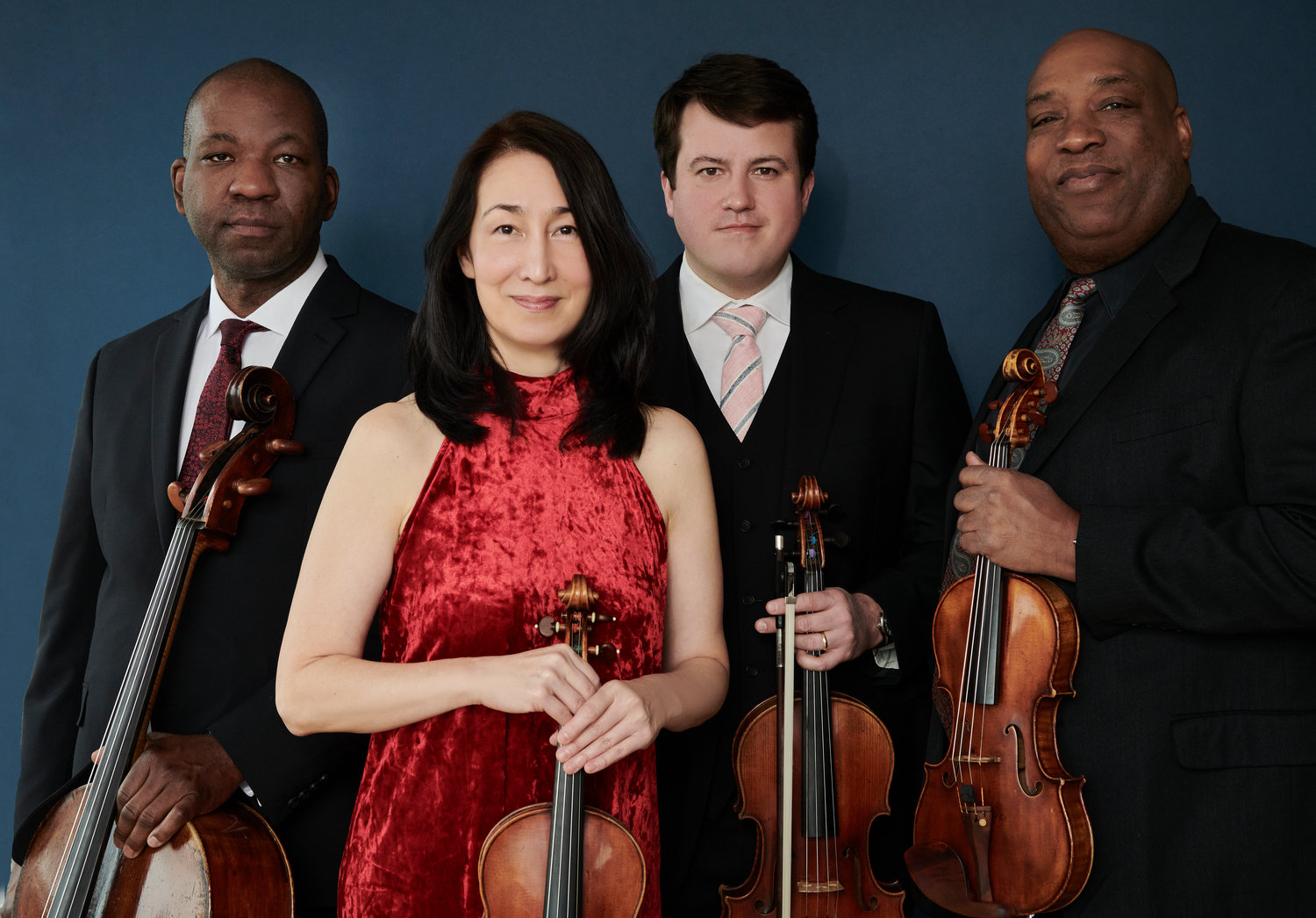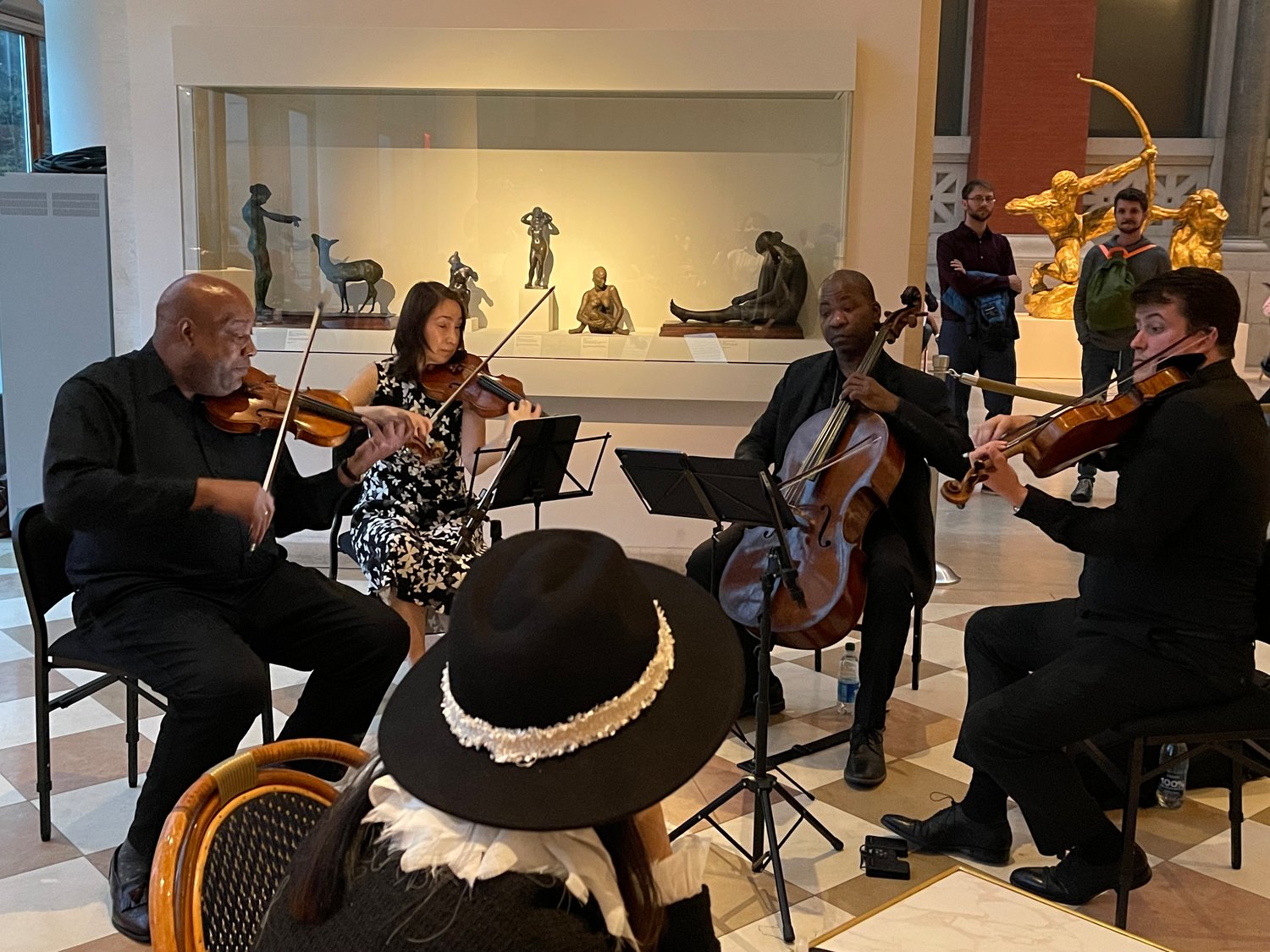Harlem Chamber Players to play Elmont
The Harlem Chamber Players will treat the Elmont community to a classical music performance at the Elmont Memorial Library on Nov. 5.
The concert will begin at 4 p.m. and will feature the classical music of Black composers. The Harlem Chamber Players are an ethnically diverse group of professional musicians from the Harlem School for the Arts, bringing their live music to people in the Harlem community and beyond.
The performance will feature sounds from Black and Hispanic composers who have been overlooked when it comes to classical music, such as Chevalier de Saint-Georges, William Grant Still, Tania León and Jessie Montgomery. The concert will be performed by the Harlem Chamber Players strum quartet of Ashley Horne, Claire Chan, William Frampton and Wayne Smith.
The quartet is made up of freelance musicians and has become a regular group. The Harlem Chamber Players encompass more than 40 classical musicians, and the chamber music series began in 2008 as a partnership between clarinetist Liz Player and the late violist Charles Dalton.
Player, 57, lives in Harlem and was enamored by classical music at a young age, having studied clarinet when she was 11. She is the executive and artistic director and founder of the Harlem Chamber Players and was inspired and encouraged by the late Janet Wolfe, the founder of the New York City Housing Authority Symphony Orchestra and long-time patron of minority classical musicians. Wolfe, who lived to the age of 101, founded the housing symphony orchestra in 1971, a musical group that lasted for more than 40 years but grew smaller as Wolfe got older.
“She was a big inspiration for us starting the group,” Player said. “This group, in many ways, is a continuation of what she started. The housing symphony orchestra gave opportunities mainly to Black and Latina musicians who are underrepresented in the classical music arena, and that’s what we’re doing. We wanted to continue her legacy.”
The chamber players started off performing at St. Mary’s Church in Harlem. After Dalton passed away in 2010, Player’s husband, Carl Jackson, who is also a clarinetist, helped her build up the group and came up with the official title of the Harlem Chamber Players. Player decided on emphasizing an ethnically diverse group of musicians based on the landscape of classical musicians, which she saw as very homogenous.
“If you look at the major symphony orchestras in this country, less than 4 percent of musicians are Black or brown,” Player said. “The classical music arena is one of the last art vehicles that has so few Black and brown musicians. In some ways, we started the Harlem Chamber Players to provide opportunities for Black and brown musicians who weren’t being hired as much by orchestras and other chamber music organizations.”
The Harlem Chamber Players have performed at many different venues, including the Apollo Theater, St. Paul’s Chapel at Columbia University, Merkin Concert Hall, the Brooklyn Museum, the Brooklyn Public Library and Carnegie Hall. The chamber players are a community-based organization, with most of their concerts held in Harlem, Brooklyn and the Morningside Heights area in Manhattan. The scheduled performance at Elmont Library will be the group’s Long Island debut, and Player’s goal is to expand further out from Harlem.
“Harlem is our home base, but we would like to be everywhere,” Player said.
The chamber players have partnered with numerous organizations, including the Schomburg Center for Research in Black Culture, the Harlem School of the Arts, Harlem Opera Theater, Columbia University, Goddard Riverside Community Center, and Dance Theatre of Harlem. The group grew dramatically during the pandemic, focusing on creating online content, which is how the regular quartet came about. While the chamber players have come a long way since 2008, Player said she still has high aspirations for the group.
“We have been around, we’ve had many successes and while we are growing and doing a lot better, we’re still operating at a budget that is a fraction of what other groups get, so I would like for us to get further,” she said.

 60.0°,
Mostly Cloudy
60.0°,
Mostly Cloudy 









